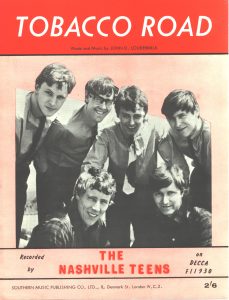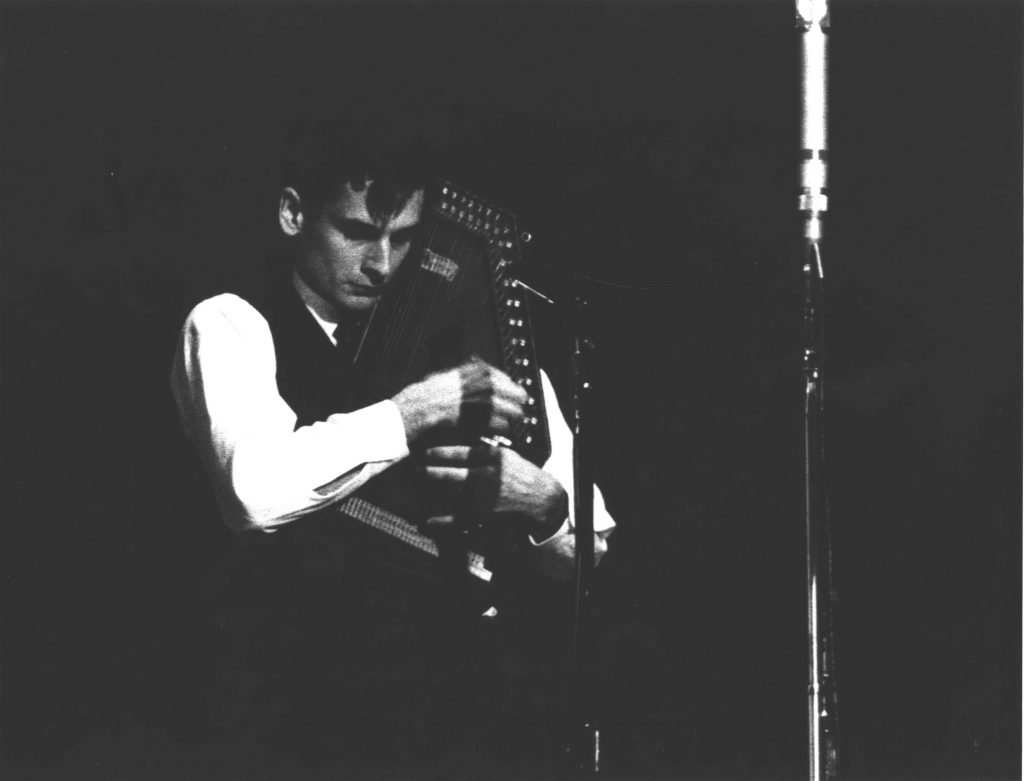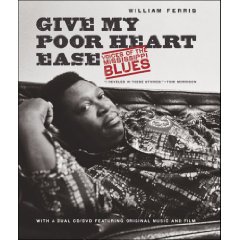It seems that the recording industry’s habit of exaggerating the sound quality of their wares is as old as the recording industry itself. The claims made in this lovely ca. 1928 Edison Records catalog, found in the Eugene Earle Collection, make one wonder how further advances in audio technology could possibly have been made:
To the person who requires music in the most perfect obtainable form, Edison Records have a unique appeal… A special process of recording, developed by Thomas A. Edison, father of the phonograph, is so successful in catching every shade and inflection of the voice or instrument that it preserves ALL the characteristics of the original performance; then, when the record is played, it Re-Creates the music note-for-note and word-for-word with such uncanny fidelity to the original as to baffle skilled musicians and critics; they are unable to distinguish the Artist’s own performance from the Edison Re-Creation of it… Distinguished artists have sung or played in direct comparison to their Edison recordings, and have shown by actual test that “there is no difference”.

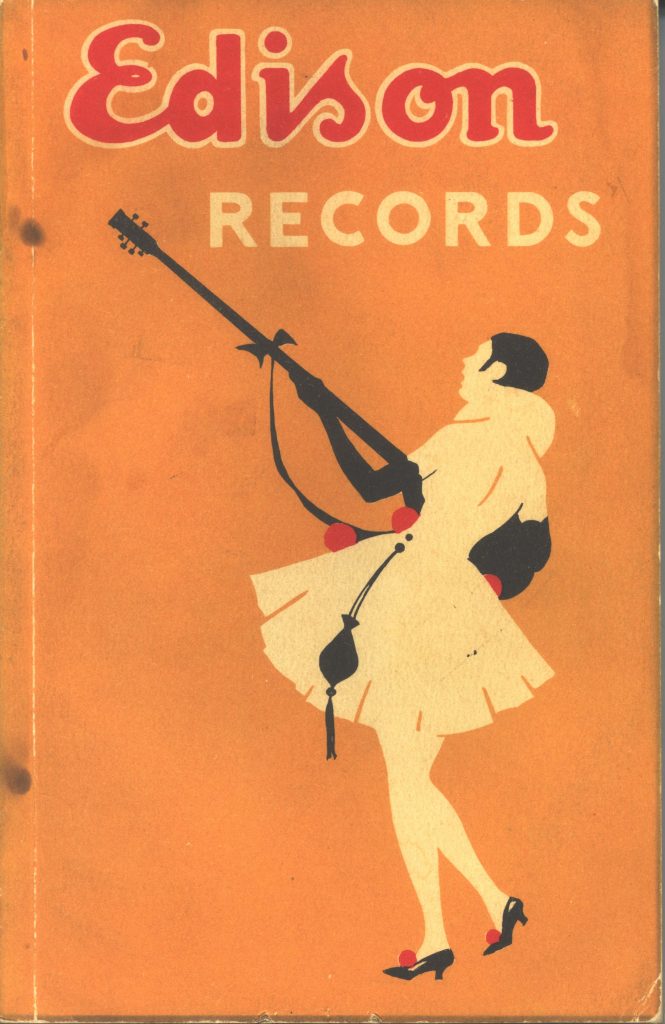
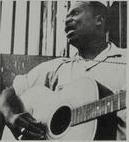
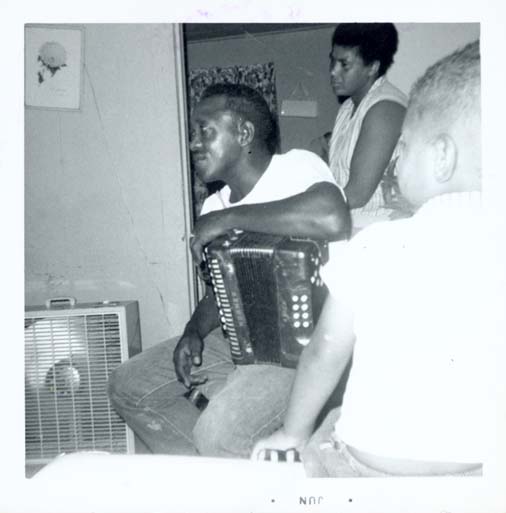

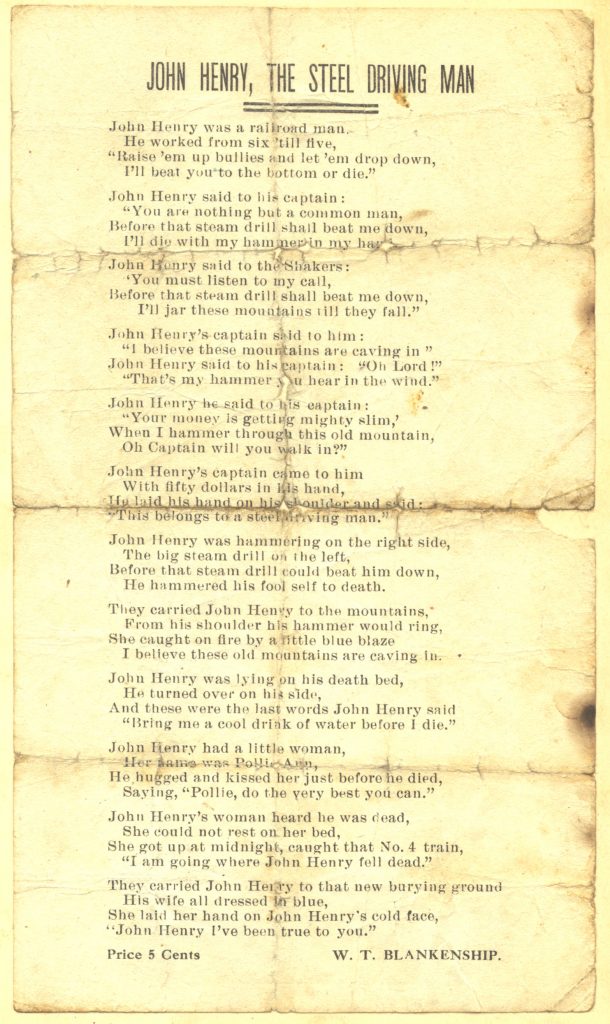 This broadside, from the
This broadside, from the 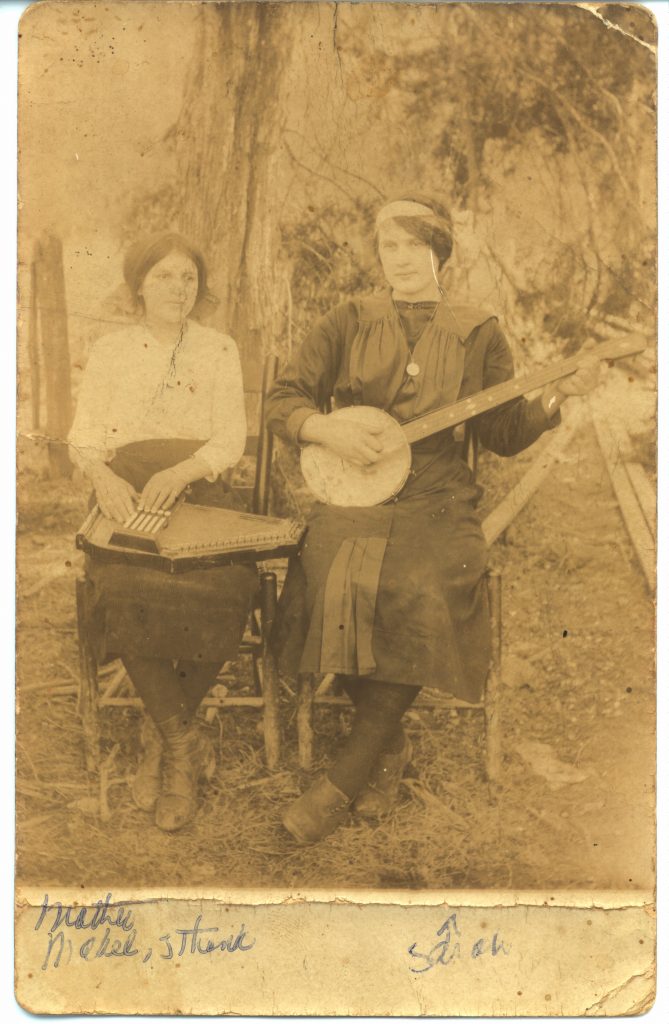 Sara Carter (banjo) and her cousin Maybelle (auto harp), ca. 1919, about eight years before the first recordings of the Carter Family.
Sara Carter (banjo) and her cousin Maybelle (auto harp), ca. 1919, about eight years before the first recordings of the Carter Family.